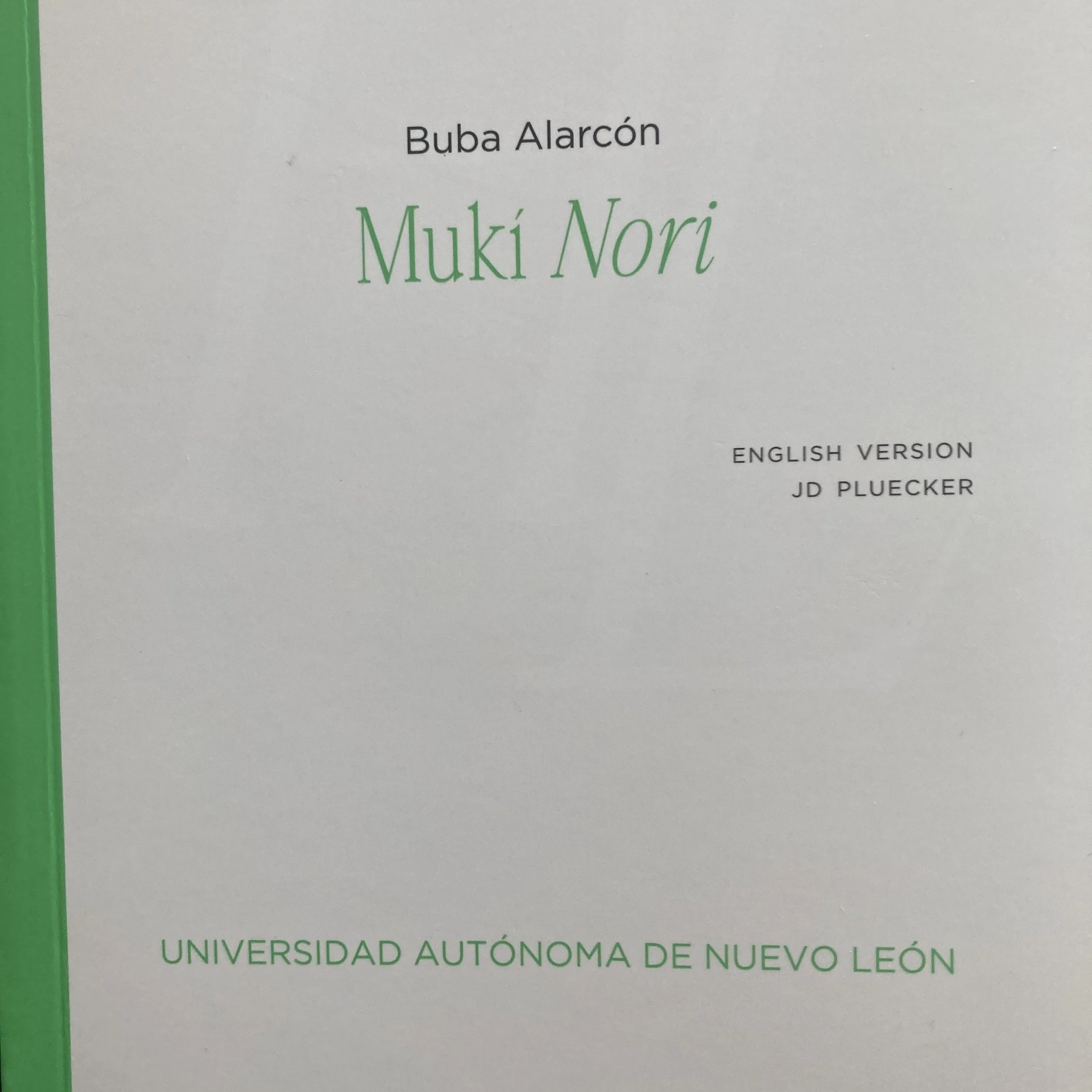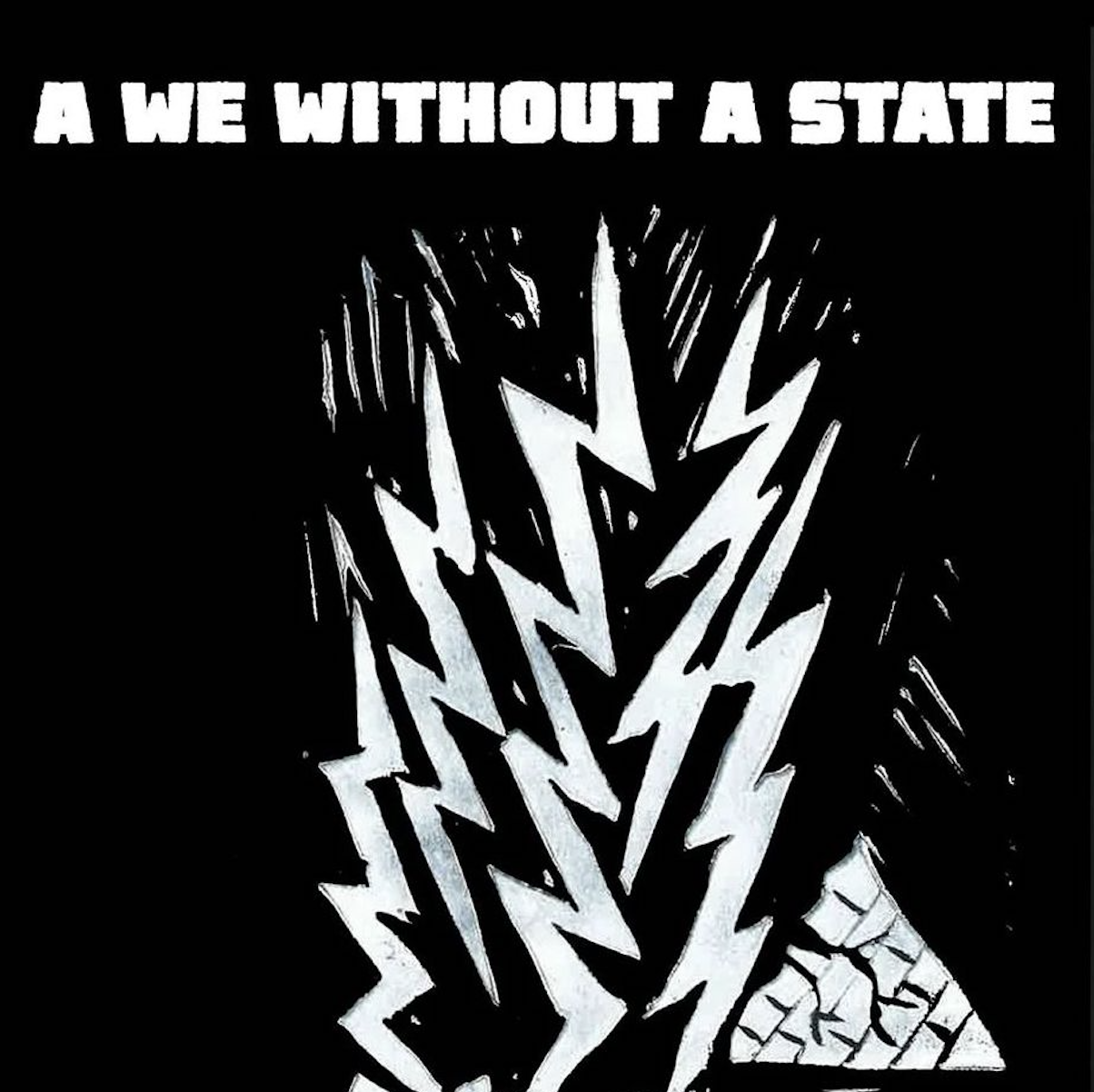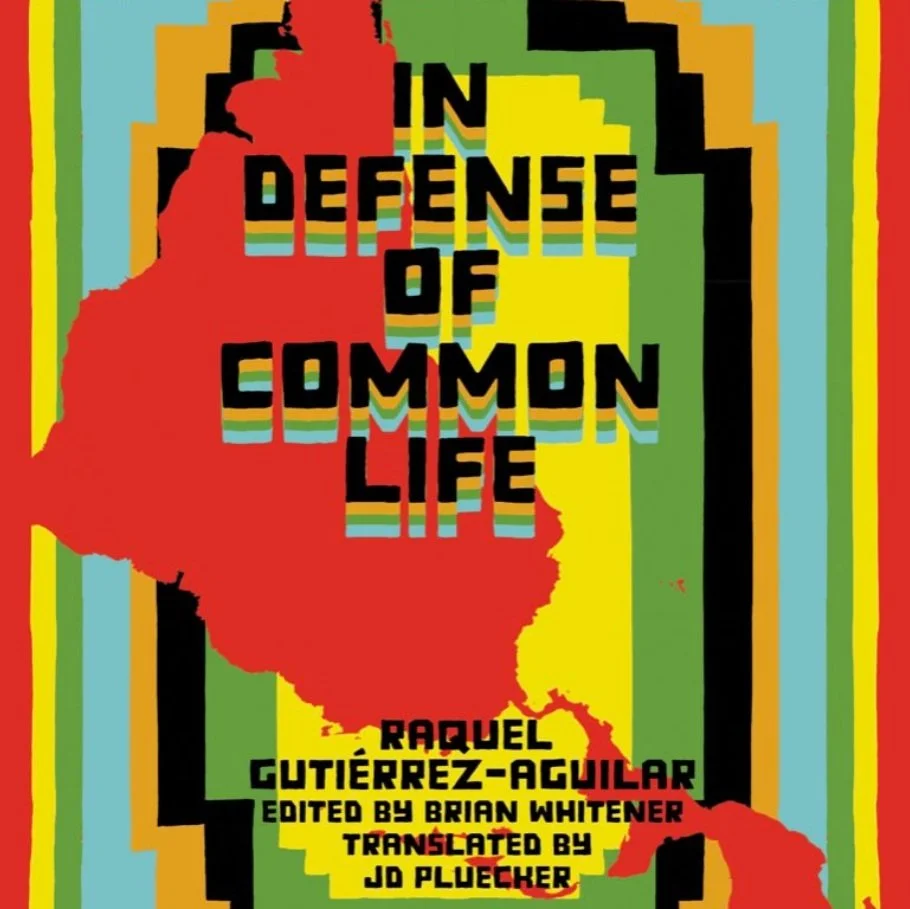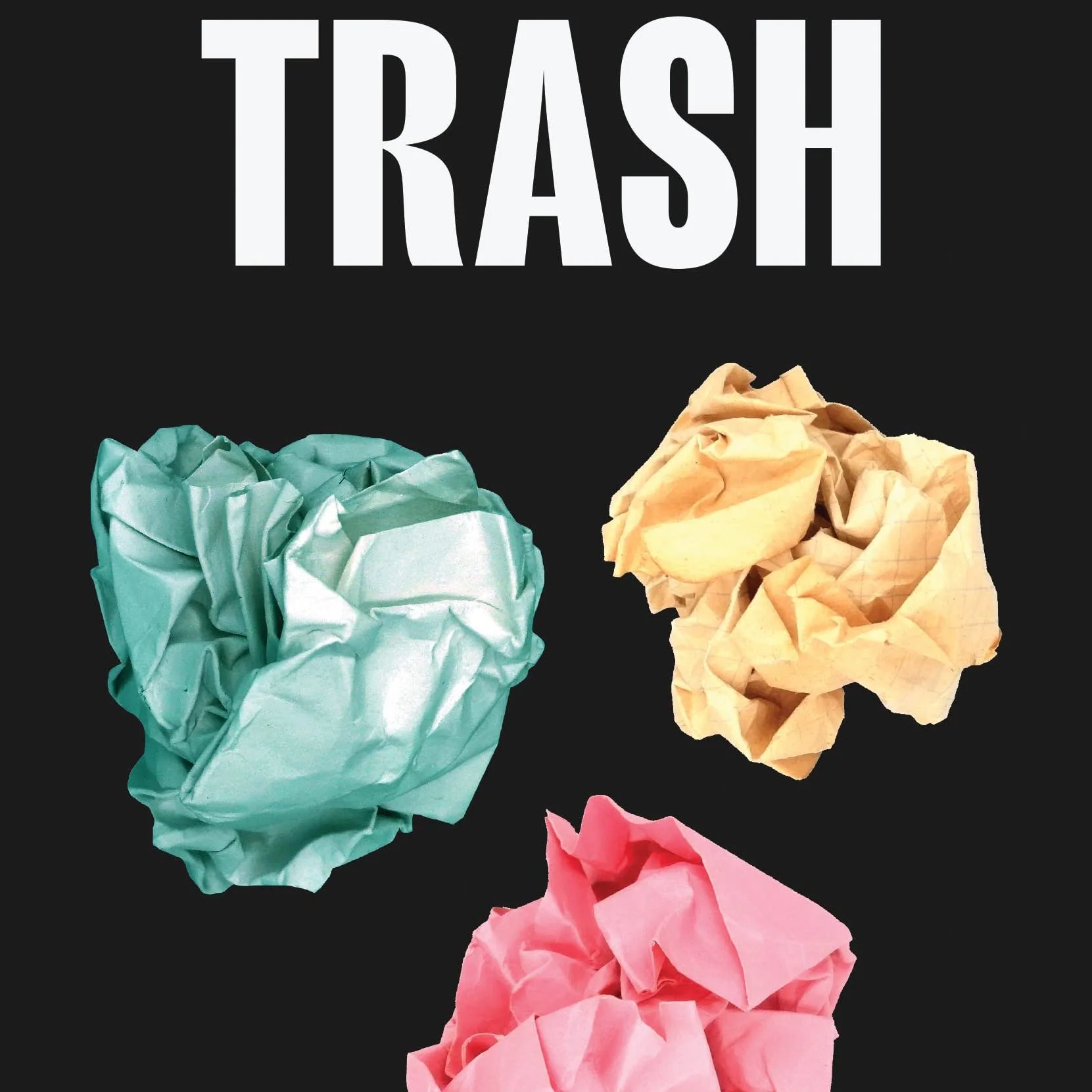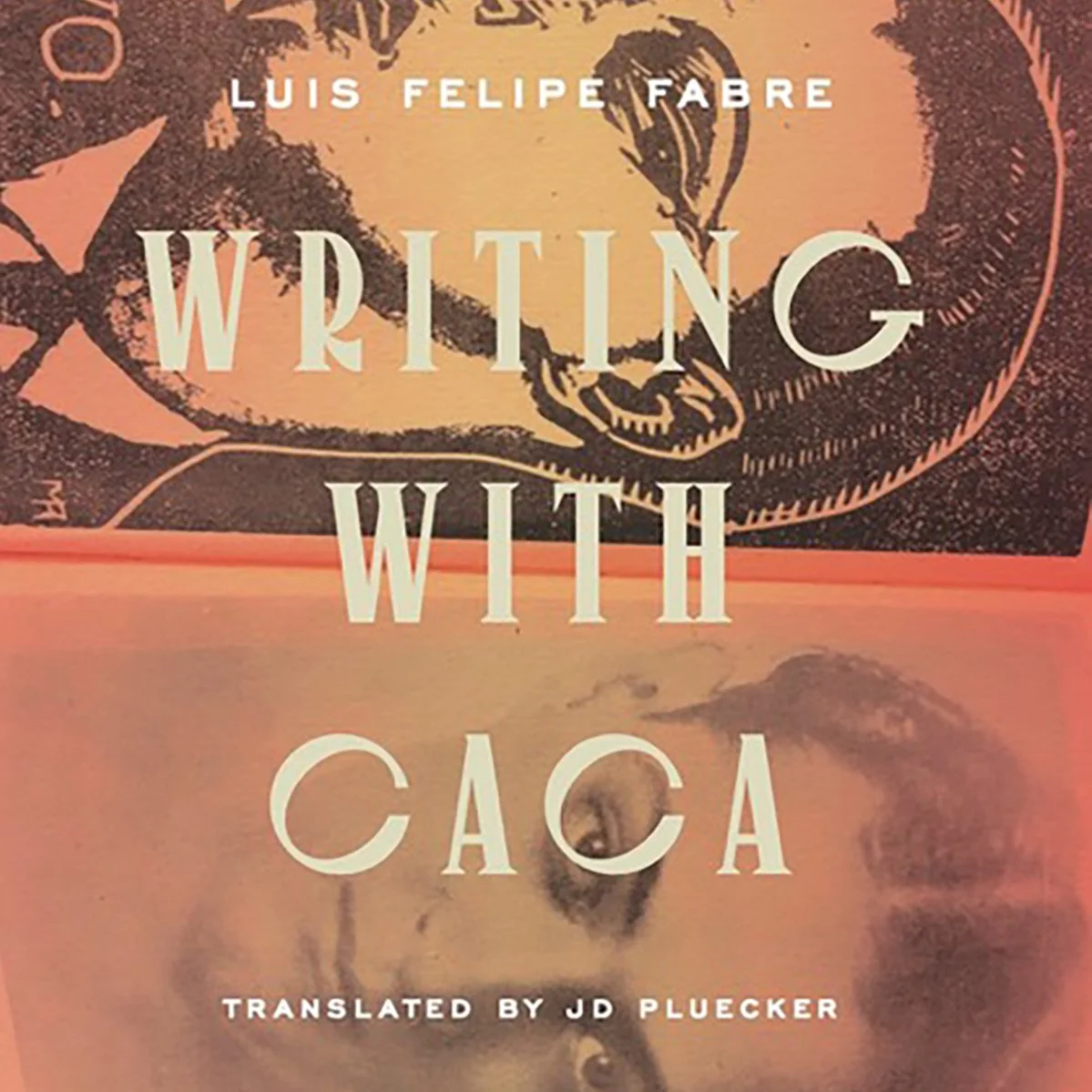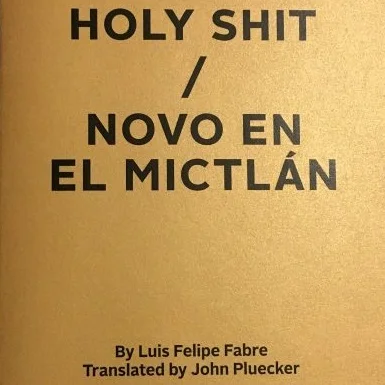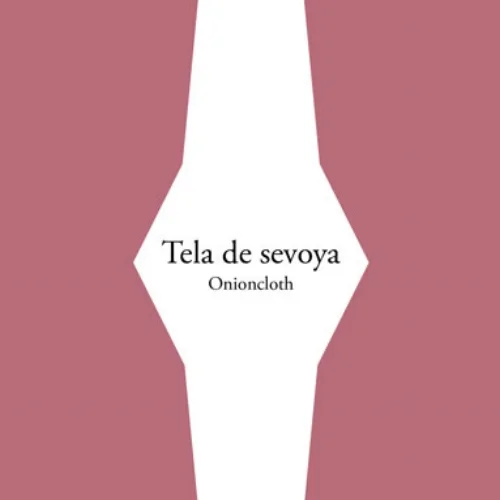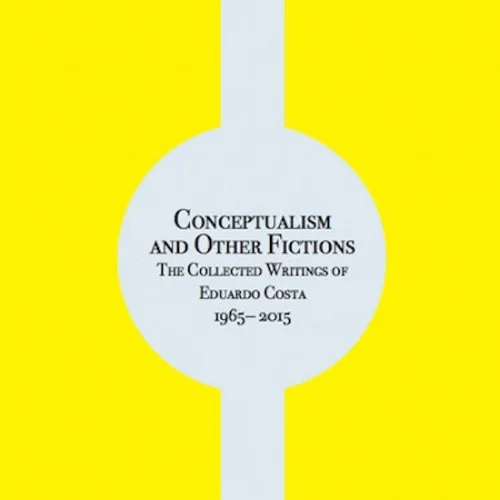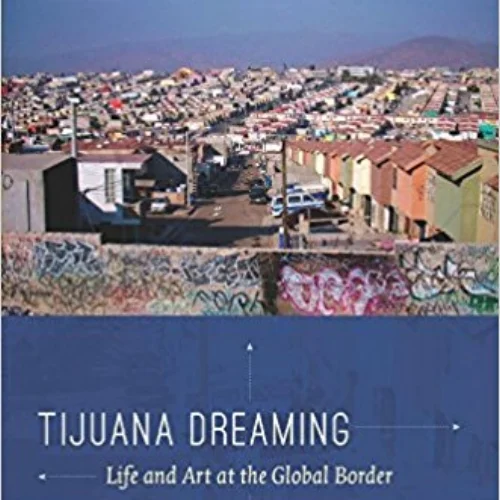Translation
Translation is a process of crossing—crossing one's self and land and language, an engagement, a learning, joy, pain and inevitable failure. Productive failure. An opportunity for creation in the wreckage. Crossing borders to learn there is no there on either side. Here is a list of translations of chapbooks and books that I have published.
To receive news about upcoming books and projects by email, sign up here.
Muki Nori
A book of poems by Buba Alarcón
Universidad Autónoma de Nuevo León, 2025
Mukí Norí is a poetic re-emergence of an archive rarely recalled, a moment in the life of Marisela Escobedo. The book is a documentary poetic attempt at re-surfacing.
A We Without a State
A book of essays by Yásnaya Elena Aguilar Gil
Rupture Press, 2025
Through clear and compelling prose, A We Without a State offers an intellectual and political intervention of vital urgency: an invitation to think beyond the modern nation-state and toward worlds organized through autonomy, communal governance, and radical plurality. This English-language edition brings together three of Aguilar Gil’s most celebrated essays—“Never Again a Mexico Without Us?”, “Minuscule Structures,” and “A Sociopolitical Milpa.”
In Defense of Common Life: The Political Thought of Raquel Gutiérrez Aguilar
A book of essays by Raquel Gutiérrez Aguilar, edited by Brian Whitener
Common Notions, 2024
The essential political and theoretical work of one of Latin America’s most important contemporary theorists. From armed Indigenous struggle in the Bolivian altiplano to the contemporary wave of feminist uprisings, Raquel Gutiérrez's life and work have spanned and spurred on some of the most important political sequences in the last forty years in Latin America.
Trash
A novel by Sylvia Aguilar Zéleny
Deep Vellum Press, 2023
A polyphonic novel that interweaves the voices of three women with connections to the municipal garbage dump of Ciudad Juárez, Mexico, forming a singular narrative that presents the complexities of survival and joy, love, loss, and violence in the terrain between the United States and Mexico.
Escribir con caca / Writing with Caca
A bilingual edition of an essay on poetics with a long poem by Luis Felipe Fabre
Green Lantern Press, 2022
Luis Felipe Fabre's book Escribir con caca / Writing with Caca revolves around Salvador Novo (1904-1974), responding to Octavio Paz's famed slander against him that "Novo did not write with blood, but with caca" by developing a theory of writing as digestion, writing as excrement, writing from the queer anus. “Luis Felipe Fabre wonders what it means to transfigure anus and shit from mere subject matter into substance and style and writing itself.’” - Roberto Tejada
todas las cajas están vacías / all the boxes are empty
A bilingual edition of a manifesto in the form of a long poem by Sara Uribe
Tripwire Pamphlet Series, 2020
This manifesto insists on an embodied writing, writing in, from, and with the body: with the bodies, whether present or absent. This is a text and subtext that construct, deconstruct, and resist through an idea of poetry as becoming, re-writing, and recycling: reverberations, echoes, loops, archives that unsettle, and an unspeaking of linguistic boundaries. This is a politic of writing that proposes to steal time and language from the jaws of capital and the constrictions of state-orchestrated culture. A call to re-produce the present, collectively, each and every day. Click here to order a hardcopy or download a PDF.
Holy Shit / Novo en el Mictlán
A bilingual edition of a chapbook with one long poem by Luis Felipe Fabre
Green Lantern Press, 2019
Holy Shit / Novo en el Mictlán is a long poem extracted from Luis Felipe Fabre's book Escribir con caca / Writing with Caca about Salvador Novo (1904-1974). In the book, Fabre responds to Octavio Paz's famed slander against Novo that "Novo did not write with blood, but with caca" by developing a theory of writing as digestion, writing as excrement, writing from the queer anus. This chapbook was released by Green Lantern Press in advance of the publication of the whole book in Winter 2019. The chapbook is a hot pink and gold saddle stitched pamphlet, designed by Sonnenzimmer. * Out of Print *
Gore Capitalism
A book of theory by Sayak Valencia
Semiotext(e) / MIT Press, 2018
Written by the Tijuana activist intellectual Sayak Valencia, Gore Capitalism is a crucial essay that posits a decolonial, feminist philosophical approach to the outbreak of violence in Mexico and, more broadly, across the global regions of the Third World. Valencia argues that violence itself has become a product within hyper-consumerist neoliberal capitalism, and that tortured and mutilated bodies have become commodities to be traded and utilized for profit in an age of impunity and governmental austerity. This book is essential reading for anyone seeking to analyze the new landscapes of war.
Tela de Sevoya / Onioncloth
A bilingual edition of a book by Miriam Moscona, translated by Antena (Jen Hofer with John Pluecker)
Les Figues Press, 2017
The narrator of Tela de sevoya travels to Bulgaria, searching for traces of her Sephardic heritage. Her journey becomes an autobiographical and imagined exploration of childhood, diaspora, and the possibilities of her family language: Ladino or Judeo-Spanish, the living tongue spoken by descendants of the Jews expelled from Spain in 1492. Memoir, poetry, storytelling, songs, and dreams are interwoven in this visionary text—this tela or cloth that brings the past to life, if only for a moment, and weaves a powerful immediacy into the present.
Antígona González
A bilingual edition of a hybrid book by Sara Uribe
Les Figues Press, 2016
Antígona González is the story of the search for a body, a specific body, one of the thousands of bodies lost in the war against drug trafficking that began more than a decade ago in Mexico. A woman, Antígona González, attempts to narrate the disappearance of Tadeo, her elder brother.
A choral reading of Antígona González was held in Houston, Texas on Saturday, September 23, 2017. See this page for more details on this event.
Conceptualisms and Other Fictions
A book of art writing by Eduardo Costa, co-translated with Jen Hofer
Les Figues Presse, 2016
Conceptualism and Other Fictions reveals the aesthetic range, critical wit, and literary sensibility of Argentine artist Eduardo Costa. This collection brings together essays, letters, interviews, reviews, scripts, and other texts published in Spanish and English over the past fifty-five years.
Sor Juana y otros monstruos / Sor Juana and Other Monsters
A bilingual edition of a chapbook by Luis Felipe Fabre
Ugly Duckling Presse, 2015
In seventeenth century, colonial-era Mexico, Sor Juana Inés de la Cruz’s visionary and passionate verse assured her a seminal place in the literary canon. Luis Felipe Fabre has reimagined this mysterious figure, so often appropriated and dissected by academics and literati. Fabre’s poems are built out of sixteenth century octosyllabic tetrameter and pulp novels, out of horror movie trailers and pompous academic papers, out of Medusas and dreams, Bat Sisters and rhymes.
Magnitud/e
A bilingual edition of a chapbook by Sara Uribe & Marco Antonio Huerta
Gusanos de la Nada, 2012
A text that builds with the flies, political murders, teleportation, bodies and the limits of justice.
Tijuana Dreaming: Life and Art at the Global Border
An anthology edited by by Josh Kun and Fiamma Montezemolo
Duke University Press, 2012
Tijuana Dreaming is an unprecedented introduction to the arts, culture, politics, and economics of contemporary Tijuana, Mexico. With many pieces translated from Spanish for the first time, the anthology features contributions by prominent scholars, journalists, bloggers, novelists, poets, curators, and photographers from Tijuana and greater Mexico.
Feminism: Transmissions and Retransmissions
A book of essays by Marta Lamas
Palgrave Macmillan, 2011
This book presents a critical and deeply personal history of Mexican feminism in the last thirty five years. Drawing from her many years of activism and anthropological scholarship, influential thinker Marta Lamas covers topics such as the political development of the feminist movement, affirmative action in the workplace, conceptual advances in regard to gender, and disagreements among feminists.
The Black Minutes
A novel by Martín Solares, co-translated with Aura Estrada
Grove Atlantic, 2010
A finalist for France’s most prestigious award for crime fiction, the Grand Prix de Littérature Policière, and for the Rómulo Gallegos Prize, this novel was published to great acclaim and rave reviews. In the US, the book was selected for the Longlist for the 2011 Best Translated Book Award and was awarded the 2011 Independent Booksellers Choice Award. Junot Díaz said about the book, "“A breathless, marvelous first novel . . . This is Latin American fiction at its pulpy phantasmagorical finest . . . a literary masterpiece masquerading as a police procedural and nothing else I’ve read this year comes close.”
Portable Paradise
A collection of short stories by Mario Bencastro
Arte Público Press, 2009
A stirring collection of stories bring to life the impact of war and the need to leave one’s country due to violence and poverty. Acclaimed Salvadoran writer Mario Bencastro examines themes of war, dislocation, and longing in this bilingual collection of stories, poetry, and one novella. Many of his characters are forced to leave their homelands because of violence and poverty. But once in the Promised Land, separated from family and friends and in a country whose language and culture they don’t understand, many find themselves overwhelmed by feelings of loss and nostalgia.
Bajo el puente / Under the Bridge
A bilingual edition of a collection of short stories by Rosario Sanmiguel
Arte Público Press, 2008
Originally published in Mexico as Callejon Sucre y otros relatos (Ediciones del Azar, 1994), the seven stories included in this collection interweave themes of solitude and connectedness, longing and privilege, fear and audacity, as they question the very boundaries of self-awareness.
Additional non-book-length literary translations have been published in numerous journals and magazines like Eleven Eleven, Aufgabe, Asymptote, Words without Borders, El periódico de poesía, Latin American Review, Third Text and Literal, among others. For a complete listing, email plujo7 at gmail dot com for a CV.
